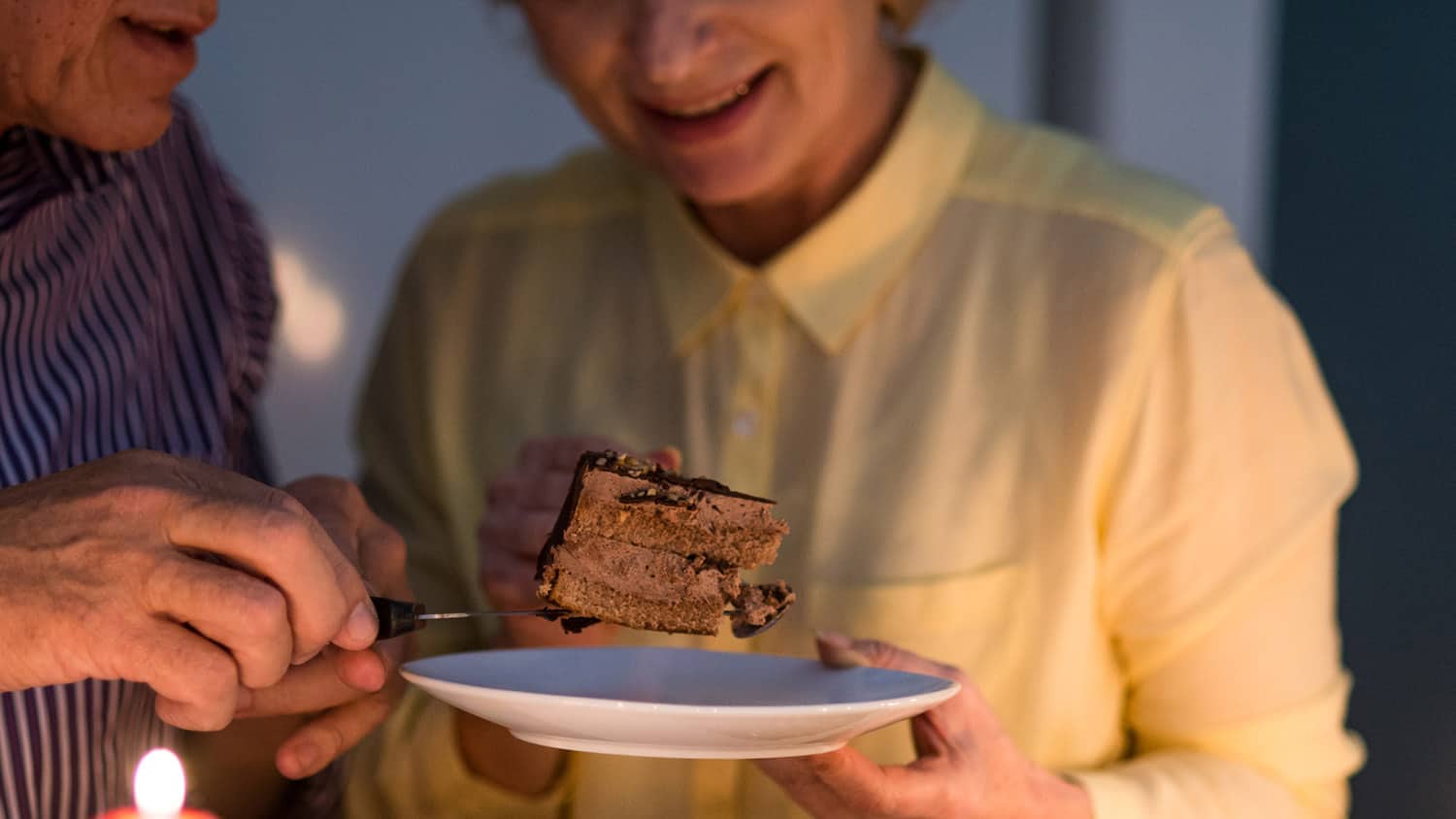
What You Need to Know About Night Eating After 60
One issue with which many of my clients struggle is eating at night, after they have had dinner. I hear things like:
“My husband and I watch TV and snack after dinner.”
“I feel mildly hungry around 9-ish, and am afraid that if I don’t eat, I’ll wake up in the middle of the night, starving, and won’t be able to sleep.”
“Well, I crave sweets at night and sometimes binge on them.”
I believe there are three main reasons why most people want to eat shortly after they’ve had a reasonable dinner:
One
They were distracted when they ate dinner, whether with their phone, watching TV or whatever, and therefore did not experience the satisfaction of their meal.
Two
They are tired after a long day, and associate eating food with getting more energy.
Three
Their willpower is totally depleted after having used it up on a variety of other tasks throughout the day, so their resolve is low. This especially contributes to overeating if their willpower was used to avoid eating earlier in the day, which is what usually happens when people go on diets.
There is a lot of controversy among the global medical research community about eating later in the evening. Not surprisingly, there are conflicting studies about whether it is better to eat more later in the day or earlier.
Although I’m not sure what this writer’s credentials are, she makes some interesting points about why eating at night isn’t bad, and cites some research to back it up.
When I visited Spain a few years ago, no one ate dinner until at least 9 p.m. Yes, they had siesta mid-day, but that wasn’t necessarily following their largest meal. And you know what? I didn’t see many fat Spaniards.
Europeans, in general, are known for eating a late dinner, and their obesity rates are lower than in America where people tend to eat earlier.
I’ve read studies that say eating a big breakfast will help you lose weight, and other studies that say if you eat most of your calories in the evening, you’ll lose more fat.
Everyone is different, so forget all of those rules and the so-called conventional wisdom. The important thing is to listen to your body and respond to its needs. Eating at night is only a problem if you eat when you aren’t hungry.
Here are some tips for dealing with eating at night if you want to lose weight and keep it off:
Are You Hungry?
Are you actually hungry or is something else causing you to want to eat? Maybe it’s your habit. Learning to understand this difference is crucial. If you aren’t hungry, don’t eat. Remember, the non-hunger urge to eat is just a thought in your brain.
It will pass pretty quickly, just like your other thoughts, if you don’t respond to it. If you aren’t sure, think about whether you would feel satisfied with a salad or a cup of yogurt. If you only want to eat chips or cookies, it probably isn’t true hunger.
Late Night Eating and Sleep
If eating before bedtime disturbs your sleep, avoid it. Sleep deprivation is also associated with weight gain, so aim to get enough sleep, and don’t let your sleep be disturbed by your digestion. If you’re actually hungry at bedtime, eat a banana, which contains compounds that help you sleep.
Eating Without Distractions
Call me naïve, but I still find it alarming that people actually eat their dinner while watching television. People who eat with distractions don’t taste much of their food and tend to overeat. Essentially, they don’t experience their meal, they aren’t satisfied and crave snacks afterwards.
Learn how to eat without distractions, with the exception of whomever you are dining with. This means keeping your smart phone or other devices away from where you eat, and not eating in front of the TV.
Eat or Do?
Make a choice between eating and doing other activities. If you are actually hungry, and have to choose between food and your email or the TV, you’ll likely choose to eat. If you aren’t hungry, do something else and don’t eat.
Boredom Knocking
If you eat because you’re bored, make a list of things you can do instead of eating. To break your night time eating habit, have other options that you enjoy. If you’re tired, rest!
Package Half-Empty
Don’t eat snacks or sweets out of the package. Unless there’s only one serving left or it’s a single-serving size, put your snack in a bowl or on a plate. Notice how much food you gave yourself. You’ll eat less than when you get ¾ of the way through that bag of chips and wonder where they all went!
Severe Measures – Brush Your Teeth!
Brush your teeth one-half hour after dinner. Most of us are too lazy to brush again, and food tastes awful following toothpaste.
Let’s Have a Conversation:
Are you experiencing hunger pangs an hour after dinner? Do you find yourself craving food without being hungry? What strategies do you use to stop thinking about food? Please join the conversation below.
Tags Healthy Eating







When I lived in Spain, I worked until after 10 PM and didn’t eat supper until 11 PM or later. I was very active as a fitness instructor, walked everywhere, and didn’t use the lift to my 11th floor flat unless I was carting groceries. I returned to the states leaner than I’d been in years, eventhough I was teaching fitness in California. I the difference was walking rather than driving.
In Switzerland people often like to eat their main meal at lunchtime and a have a snack in the evening, perhaps something like bread, cheese and olives.
I’ve found that drinking water when I feel hungry so late does a good job of tricking my stomach into thinking it got food, and my sleep is not disturbed at all.
I have this problem – when trying to eat less during the day, going to bed hungry keeps me awake. I really do t want to eat right before bed so it’s a dilemma. I think that over time our bodies adjust to the lower calorie intake, but the first week can be really brutal sleep wise!
Sometimes I feel hungry later in the evening, I eat a banana, nuts or a small bowl of cereal so I don’t have hunger pangs at night. Don’t eat heavy because it is not conducive to good sleep.